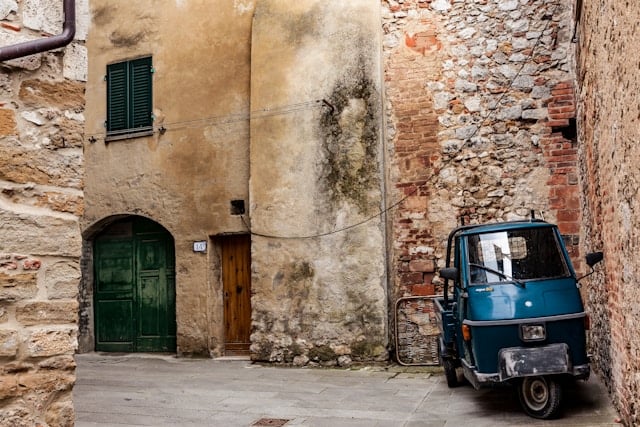Studying, and particularly studying in a new country, is no small feat. Throw studying in another language to the mix and things become even harder.
If you dream of studying in Italy, the good news is that there are a whole host of options when it comes to English-taught degrees at public universities.
This may come as a surprise considering Italy is known for not being a particularly anglophone country (it regularly ranks among the countries in Europe with the lowest levels of proficiency in English).
Italy’s universities also offer a relatively low cost of tuition, which has an upper limit of €3,000, while living expenses are also generally cheaper than in other western countries such as the US, Canada and the UK.
READ ALSO: What studying in Italy is really like and what you should expect
What’s more, the price of the course does not increase drastically for overseas students, unlike in Britain for example where fees can almost double.
That’s not to say there aren’t issues. According to the latest Times Higher Education ranking, only 26 of the country’s universities were in the top 500 for 2024. The country attracted 80,000 foreign students in 2020, which is lower than its western European counterparts.
Nevertheless, Italy does provide a more affordable option for those who don’t want to be lumbered with copious amounts of student debt.
Below we’ve listed just some of your best 2024 options.
- University of Bologna
It should come as no surprise that this academic landmark tops the list. Founded in 1088, it’s known as the oldest university in the world.
Famous alumni include poet Petrarch and filmmaker Pier Paolo Pasolini. It’s highly regarded across the globe and is Italy’s highest-ranking university, currently placed at 155 on The Times’ list.
At present Bologna has a whopping 89 courses taught in English, with the majority of those being in the Engineering and Architecture, Economics and Management and Sciences departments.
For more information, see here.
- La Sapienza of Rome
The Eternal City isn’t just about The Colosseum and The Vatican you know. Its principal university is pretty big news amongst academics and it’s currently number 181 on the Times’ list, third only to Scuola Normale Superiore of Pisa.
A lot of masters courses ranging from data science to economics are taught in English here as are bachelor’s degrees such as classics and global humanities.
Find more details here.
- Politecnico di Milano
Strictly speaking, as the name suggests, this was founded as a polytechnic and not a university back in 1863. However, it’s since become known as one of the country’s leading science-technology universities, which is perfect for aspiring engineers and industrial designers.
There are not any English-only courses at Bachelor level, but at Masters level too, with only three of the 46 courses available held only in Italian.
For more information, click on the link here.
- University of Padua
As the second-oldest university in the country (founded in 1222), it would be odd to not include the University of Padua on this list.
With teaching alumni including Galileo Galilei, it’s well-known throughout the globe. Padua city itself is full of international students, despite its much smaller size compared to the other three cities mentioned above.
READ ALSO: Five things to know before you apply for an Italian student visa
There are only seven Bachelor’s degrees on offer here, but it makes up for that shortfall in its Master’s programmes of which there are 48. Its human rights and multi-level governance course is often said to be one of the best.
For more information, click on the link here
- Tor Vergata University of Rome
Another Rome entry, Tor Vergata, is well-regarded for its computer science subjects. The university lies just outside of central Rome meaning the cost of living is that bit cheaper for those on a budget. The university has 21 English-taught courses ranging from mechatronics engineering to business administration.
For more information, see here
Special mentions
There are also a host of private universities in Italy that shouldn’t be ignored. They tend to be a lot more expensive than their public counterparts, but the majority of them have English courses available.
Università Bocconi in Milan is perhaps the most esteemed of the bunch, with LUISS University in Rome coming in at a close second. Both these institutions excel in law, economics, politics and finance.
Humanitas University in Milan offers the only medicine and surgery course in Italy taught in English. The university currently ranks at number 251 on the Times’ list.



 Please whitelist us to continue reading.
Please whitelist us to continue reading.
Member comments